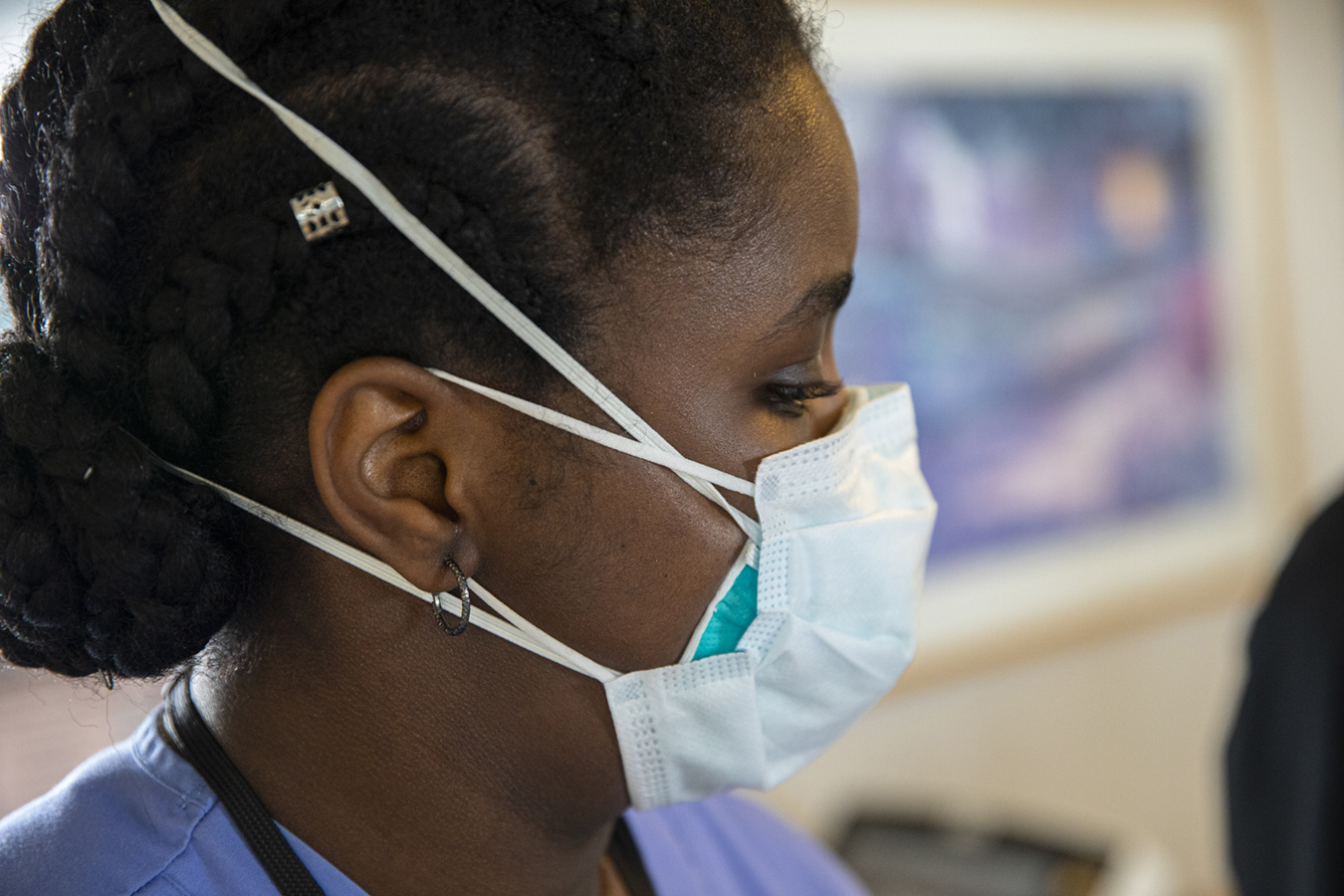You are here
 Battle Rages Inside Hospitals Over How COVID Strikes and Kills The debate over how the coronavirus spreads heated up Friday when the Centers for Disease Control and Prevention conceded that the virus spreads through tiny particles, but then took down guidance … Kaiser Health News
Battle Rages Inside Hospitals Over How COVID Strikes and Kills The debate over how the coronavirus spreads heated up Friday when the Centers for Disease Control and Prevention conceded that the virus spreads through tiny particles, but then took down guidance … Kaiser Health News Front-line health care workers are locked in a heated dispute with many infection control specialists and hospital administrators over how the novel coronavirus is spread ― and therefore, what level of protective gear is appropriate.
At issue is the degree to which the virus is airborne ― capable of spreading through tiny aerosol particles lingering in the air ― or primarily transmitted through large, faster-falling droplets from, say, a sneeze or cough. This wonky, seemingly semantic debate has a real-world impact on what sort of protective measures health care companies need to take to protect their patients and workers.
The Centers for Disease Control and Prevention injected confusion into the debate Friday with guidance putting new emphasis on airborne transmission and saying the tiny aerosol particles, as well as larger droplets, are the “main way the virus spreads.” By Monday that language was gone from its website, and the agency explained that it had posted a “draft version of proposed changes” in error and that experts were still working on updating “recommendations regarding airborne transmission.” ...
The topic has been deeply divisive within hospitals, largely because the question of whether an illness spreads by droplets or aerosols drives two different sets of protective practices, touching on everything from airflow within hospital wards to patient isolation to choices of protective gear. Enhanced protections would be expensive and disruptive to a number of industries, but particularly to hospitals, which have fought to keep lower-level “droplet” protections in place.
The hospital administrators and epidemiologists who argue that the virus is mostly droplet-spread cite studies that show it spreads to a small number of people, like a cold or flu. Therefore, N95 respirators and strict patient isolation practices aren’t necessary for routine care of COVID-19 patients, those officials say.
On the other side are many occupational safety experts, aerosol scientists, front-line health care workers and their unions, who are quick to note that the novel coronavirus is far deadlier than the flu ― and argue that the science suggests that high-quality, and costlier, N95 respirators should be required for routine COVID-19 patient care. ...



Recent Comments